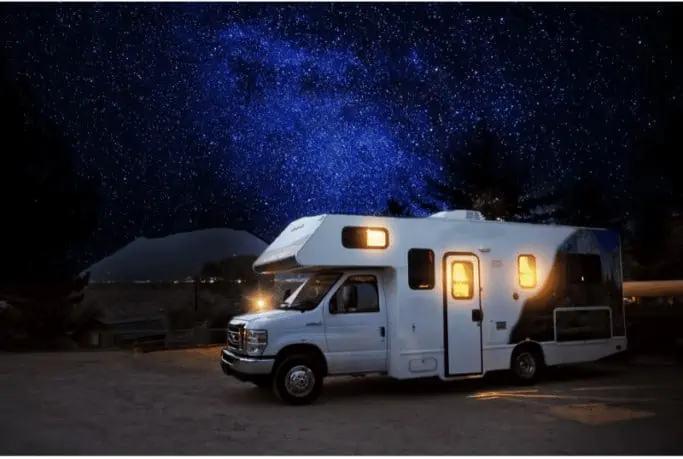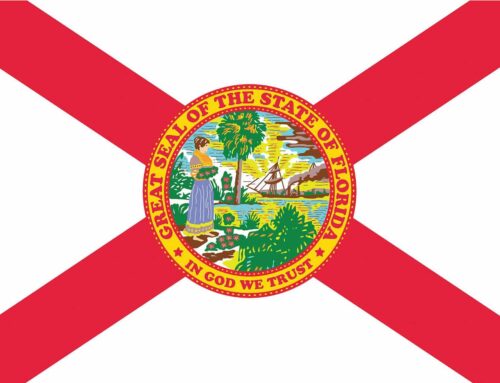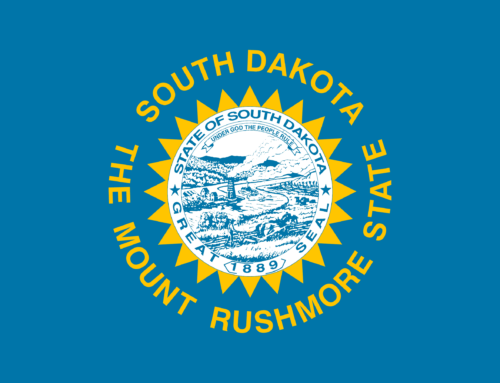If you’ve cut loose from a full-time, year-round fixed residence and you’re now living life on the road in your RV, fifth-wheeler, or van rig, you need full-time RV insurance.
As a serious RV nomad, you’ve got very different insurance considerations than the RV vacationer full-time RV insurance policy essentially combines a homeowner’s insurance policy with an auto insurance policy.
Who needs Full-Time RV Insurance?
First, let’s dispense with a myth: You don’t need to entirely dispense with your primary residence in order to need RV insurance. You should consider RV insurance if you spend 150 or more nights out of the year in your RV.
That’s about a month short of 180 days. And you may well maintain your primary residence in addition to your full-time RVer status. The two are not mutually exclusive!
Emergency Expense Coverage
Full-time RV insurance policies won’t have vacation liability coverage. Since you are living in your rig full-time, you’re not really on vacation.
But you should consider keeping some emergency expense coverage to help you pay for lodging if you’re RV is involved in a wreck or disaster that makes it uninhabitable for a time. You’ll need to stay somewhere while it’s repaired, or while you’re shopping for a replacement.
With RV repair wait times being what they are in some areas, you could be renting a hotel room for a long time.
Personal Effects Replacement Coverage
People who live in their RVs typically keep more belongings in their vehicles than either SUV and van owners or casual RV users who go out for a week or two at a time.
A full-time RV policy recognizes that. If your RV is broken into, stolen, or destroyed in a fire or flood, you could stand to lose many thousands of dollars worth of personal effects.
We’ve seen this happen with traveling bands, who could have tens of thousands of dollars in musical instruments and sound gear traveling with them on tour.
If someone figures out who you are, and breaks into your RV in a parking lot while you and your bandmates are grabbing a post-gig bite at the Waffle House at 1 AM and make off with your Martin D28 and some other instruments, you don’t want to find out later your personal effects coverage capped out at $5,000.
The same goes if you have a motorcycle, firearms, or some nice bicycles in your RV – or any other expensive personal effects.
But that’s what most off-the-shelf RV insurance policies offer. If you have more at stake, you should ask about an additional personal effects endorsement.
Not every insurance agent gets it. But insurance agents that understand RVs and the people who drive them, do.
Tip: Inventory and photograph the personal effects that you store in your RV. This makes things go much more smoothly if you ever have a claim.
Estimate the total value of your personal effects and make sure you have sufficient personal effects coverage.
Personal Liability Insurance
Most people get a few hundred thousand dollars of general liability insurance from their homeowner’s insurance policy. This provides some protection against liability if their dog bites someone if they are sued for negligence or defamation or some other form of damages not obviously related to a vehicle accident.
If you don’t have a home outside of your RV, then obviously you don’t have a homeowner’s policy. So you need to get this important insurance coverage somewhere else.
Vacation Liability Coverage
This type of coverage – sometimes called “campsite liability, provides personal liability coverage when your RV is parked off public roads for recreational purposes. For example, at RV campsites.
For example, if your fishing buddy slips on the step of your parked travel trailer and is injured, or your oh-so-friendly pit bull bites a child roughhousing down by the lake, RV vacation liability insurance kicks in.
It doesn’t overlap with any auto-type coverage on your RV. For example, personal injury protection and liability insurance under an auto policy kicks in only when the vehicle is in motion. It would not protect you against a slip-and-fall claim or dog bite claim while your RV is stationary at a campsite.
This is critically important insurance coverage.
It also doesn’t come with a full-timer’s RV insurance policy.
Instead, a full-timer’s policy normally includes a broader array of personal liability and premises liability coverage. So it functions more like at the liability provisions of a traditional homeowners insurance policy.
So if you’re a full-time RVer, and especially if you don’t have significant liability protection in place via your homeowner’s policy, you need a full-timer’s RV policy with those broader premises liability provisions.
This brings us to…
RV Premises Liability Coverage
Your RV’s vehicular policy covers damage you might cause while driving your RV. And if you’re towing a trailer or fifth-wheeler, the auto liability policy on the towing vehicle provides liability insurance.
But what about when the vehicle is parked?
In that case, you still need liability insurance. But when your RV is parked, the liabilities you need you to need to protect against are a lot closer to the ones covered under the premises liability provisions of your home insurance policy.
Total Loss Replacement Coverage
You don’t need to be a full-timer to buy this coverage. But if your RV is your home – even if it’s a second home – then it’s even more important to be able to replace it with a similar model in similar condition.
The problem is that in the event of a total loss, a typical auto insurance policy or RV insurance policy only pays out the actual cash value of the vehicle. Which is the estimated value of the RV after deducting mileage, pre-existing damage, and wear and tear.
That’s going to be way less than what it will cost to replace the RV.
For example, suppose you pay $500,000 for a nice Class A RV. You live in it full-time for six years, and BAM! It’s destroyed in a tornado. Total loss.
Now it might cost $600,000 to replace the RV, thanks to inflation. But unless your agent structures your policy correctly, your settlement check might come out to $290,000.
How?
After five years, maybe the actual cash value of your vehicle has declined from $500,000 down to $300,000 after accounting for mileage/depreciation. And then they’d also subtract a deductible.
So just to be restored to your status quo ante lifestyle, you’d have to pay hundreds of thousands of dollars out of pocket to get back on the road again. After your insurance pays out, you still have a real loss of at least $210,000!
Most people with RVs are grossly under protected against the real risk of a total loss.
To avoid getting caught in the actual cash value trap, full-timers and anyone who relies on their RV to maintain their desired lifestyle, or who can’t afford to just go out tomorrow and write a check for half the cost of the RV they want should consider full replacement cost coverage.
Details vary by carrier. And not every carrier offers full replacement cost coverage. But they typically work something like this:
If your RV is totaled within the first four years, the full replacement cost policy will replace it with a new model or a comparable model if the model you were driving isn’t available.
From year 5 through year 7, if your RV is totaled, the insurance policy covers the original purchase price or your actual cash value… whichever is greater.
In year 8 and thereafter, the full-replacement cost provision expires, and your RV is insured at actual cash value, after depreciation, like most off-the-shelf insurance policies.
You have to pay a bit more in premiums for full replacement value coverage. But in many cases, it’s worth it. Especially for full-timers, who tend to rack up far more miles and far more depreciation than weekend warriors and casual users.
The more you drive your RV, the more you should consider full replacement value.
Trailers and 5th Wheelers
With trailers and 5th-wheelers, you don’t need a separate auto liability policy for the RV. Instead, any vehicular liability that arises from a trailer collision adheres to the vehicle policy.
Trailer mishaps occur all the time. And the larger ones can do a lot of damage, just because of their weight and bulk.
So if you’re towing a RV trailer or fifth wheeler, or even a cargo trailer for your camping gear, it’s a good idea to add some substantial liability insurance to your truck that will be towing the trailer. That includes both personal injury and property damage liability coverage.
If you have two trucks, be aware of which truck has the plussed-up insurance, so you only use that vehicle to tow the trailer. You don’t want to have an accident and only realize after the fact that you didn’t insure both your trucks with the added liability coverage!
Coverage When Your RV Is Parked on Your Own Property
Generally, when your RV is parked on your own property, it’s covered under your homeowner’s insurance policy. But you should definitely declare it on your homeowner’s policy, or your limits may be insufficient to fully protect you. So if your RV is parked at home, be sure to let your homeowner’s insurance carrier know, and make sure it’s specifically listed on your insurance policy.
You should also take a look at your homeowner’s insurance deductible, and whether your home insurance covers personal property at actual cash value or at replacement cost.
Unless you take action, you could be underinsured when your RV is parked on your property without even realizing it.
Why Select Insurance Group is Different
RV insurance isn’t one-size-fits-all. Especially when you’re in a full-time RV lifestyle!
Everybody’s coverage needs are different. And every insurance carrier is different, too! Each of their slices, dice, and prices different forms of risk in different ways. Some are much more friendly to full-time RVers than others. Some offer full replacement costs, and some don’t. Some charge more for liability risk than others. Some charge retirees more than others.
Some carriers offer more personal effect coverage than others. Or have fewer exclusions. And some charge more in different states than others.
With this much money on the line, you want to work with a broker and agent who understands the full-time RV user and the lifestyle, so they can help you identify your real coverage needs.
You also want to work with insurance carriers who truly understand and value the RV business line, and that have the underwriting programs and offer the types and levels of coverage you need – at a reasonable price.
Often, the best insurance company for you isn’t the household name. Some of the best carriers are the best because they aren’t big and because they specialize in the RV business.
At Select, we focus on high-value vehicles, RVs, and non-standard risks.
We’re built for people like you.
What To Do Now
The best thing to do is to get some quotes from all the different quality specialty RV insurance carriers active in your state. At Select Insurance Group, we’ve got access to them all and we’re appointed with them all. So you can get all the quotes you need with a single phone call.
You should get a round of updated quotes every year or two, anyway, or anytime your lifestyle changes.
Contact us today, and either fill out the online inquiry form or give us a call directly at (855) 438-7353.
See you on the road!
Steve “Mr. Insurance” Ludwig
CEO, Select Insurance Group
For Further Reading
RV Insurance 101
Montana LLCs, RVs and Car Registration – What You Need To Know
High Net Worth Car Insurance – Auto Insurance Tips for the Wealthy
Is Comprehensive Coverage Worth It?






